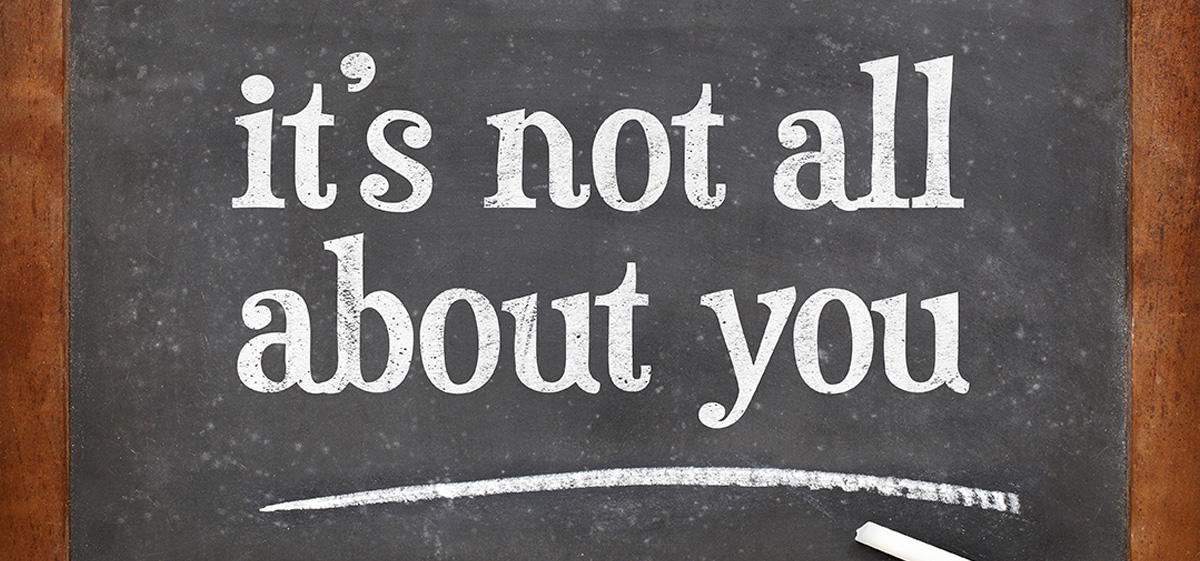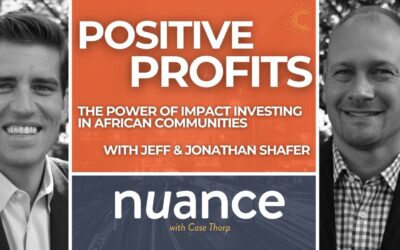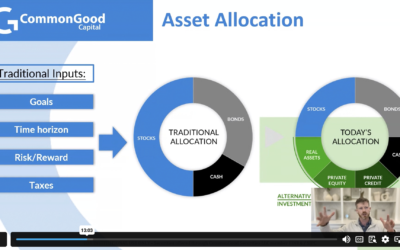When was the last time you thought about how your investments were impacting others? Or for that matter, when was the last time you thought about your investing as being an amazing gift? If your internal answers are not what you would like them to be, you are not alone. We’re all sometimes blind to the truths sitting right in front of us. How would this impact our decisions, if we lived with these truths in mind?
One hard indisputable is, you can’t take your money with you when you die. While this may not be fun to assess, it’s important to step back in a non-judgmental way and consider: how you spend your capital, how you save your capital, how you give your capital, and how you invest your capital. (Historically, people were considered wise if their capital was just invested. Today, there are more options which means wise investors are taking the extra step to ask “how” you invest your capital.) This exercise is valuable for everyone, but I believe it is especially critical for those who strive to be stewards of the resources we have been given.
And yes, I would submit that stewardship reaches into the depths of how and why we invest. It is my own long journey that has led me to this understanding and conviction. The implications for my life have been profound both personally and professionally. In my pursuit of influencing the financial services industry and through a wild turn of events, I took a huge leap of faith and start my own company, CommonGood Capital. This was the best platform to advocate for people’s values and passions to be incorporated into their investment decisions.
In January 2014, my world came to a complete stop. One minute I was president of a leading alternative investment asset management company who seemingly had what the world defined as success: a wonderful family, a great job, and a beautiful house in the heart of town with a white picket fence. Outwardly, there were no major moral failings. Things changed quickly after I woke up from unexpected back surgery. Immediately, I saw the world differently.
About a month after getting out of the emergency room, I was sitting on our couch recovering, thinking about how to use our capital in case I couldn’t go back to work at the same level. Awhile back, I had been given a short DVD clip of an investment opportunity in affordable housing, but never had the time to watch it. At that moment, I had all the time in the world. I won’t relive the video with you, but rather the moment that changed me. It was not the potential return, although that’s important, but rather hearing the testimonials from two residents who lived there before and after this group infused it with capital and new management who cared about the residents. Two phrases are still in my head after 7 years. The first was, “They have given me my dignity back!” The second was, “I am so excited to have friends come over to my home now”. That’s when I realized at a deeper level the power of capital and stewardship. Our capital, when used correctly, has the power to influence, serve, and love others. And this was the catalyst of our journey into asking, “What does it mean for me and my family to be thoughtful stewards of our time, talents, and treasures?”
For those who are not familiar with impact investing, this term was coined in 2007 by the Rockefeller Foundation. Impact investments are defined as investments made into companies, organizations, and funds with the intention to generate social or environmental impact alongside a financial return. That probably makes sense, but as you start to think about it, there will inevitably be some questions. Doesn’t every company make money and generate social and environmental impact? Or how do you define social or environmental impact? Or who decides what is good and acceptable? Can you make money and do good? These are all great questions and ones that I started to ask nearly 8 years ago (and still wrestle with today). Let me give you a framework that will be helpful as you think through these types of questions.
Define the return expectation or potential.
- Assess the intentionality of impact.
- Understand the financial and non-financial goals and measurements.
- Wrestle through the sustainability of the investment.
Investing will never look the same as you start to think about how your investments not only benefit you, but also others. In fact, I would be so bold as to say that investing, which is so easily driven by fear and greed, can actually produce joy and freedom as you release the grip on your capital and start to see its impact on others. Investing is not all about me or you. And that is freeing.





